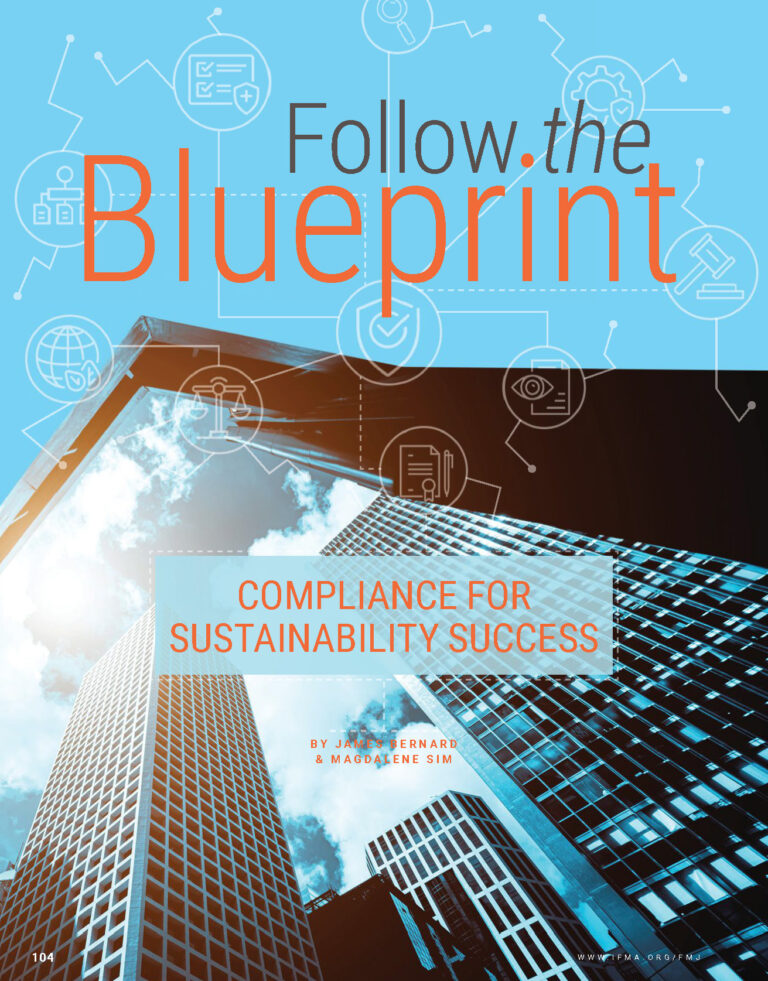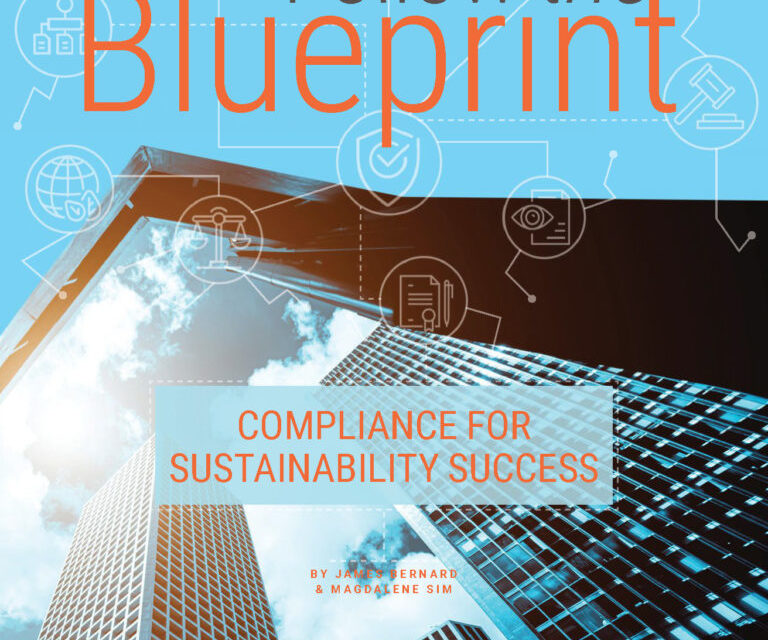
“Follow the Blueprint: Compliance for Sustainability Success” originally appeared in the July/August 2022 issue of IFMA’s FMJ
Staying ahead of new and continually updated waste regulations is key to maintaining waste compliance and avoiding potentially costly fines. But did you know, compliance is also a valuable business tool? Because regulations are often mandated to help reach local and national sustainability goals, they offer a blueprint that can guide businesses toward greater sustainability and less waste.
A Great Forest report published in the July/Aug 2022 issue of IFMA’s Facility Management Journal features case studies that illustrate how waste compliance can lead to sustainable benefits. Here are the key takeaways.
Legal Waste Compliance
In San Francisco, to achieve compliance with the city’s mandatory recycling and composting ordinance, the city’s single-franchise waste hauler set strict waste stream contamination thresholds to force the city’s businesses to maintain clean waste streams (e.g., no glass or trash in the compost stream, no organics in the recycling stream). At the time, an estimated 60 percent of the city’s waste going to landfill was actually recyclable or compostable. As a result, one of the largest office buildings in San Francisco triggered a 50 percent surcharge for repeatedly being found with contaminated waste streams.
To avoid the surcharge, the building was forced to address the contamination plaguing its recycling. The building had already been paying an inflated amount in waste costs, and would have continued to do so year after year if the surcharge had not forced a review of operations. In becoming compliant, the building not only saved money, but began recycling more, diverting more compostable material, and improving its sustainability performance. The most recent audit of the building’s recycling stream showed a remarkable, almost unattainable 0 percent contamination rate!
For this building, regulatory compliance catalyzed lasting changes.
Corporate Waste Compliance
Some companies are implementing their own compliance mechanisms, with the goal of reaching internal sustainability targets that showcase their leadership, which is a key factor in Environmental, Social and Governance (ESG) ratings for investors.
This is an approach that is being practiced by a growing number of multinational businesses that have facilities spread out over a large geographical area. Because they face fragmented waste management requirements and diverse country, state and municipal compliance issues, setting internal goals and sustainable best practices provides consistency across different production and manufacturing processes.
One multinational corporation decided to expand their sustainability efforts under an internal goal that would go well beyond meeting legal requirements for waste management in the areas in which they operate. This company’s corporate mandate was to close the loop on its operations by achieving at least 95 percent diversion from landfill and incineration — beyond the commonly understood definition of zero waste of at least 90 percent.
At one of the company’s European sites, a large amount of used paper towels ended up in the landfill, consistent with local health regulations. To close the loop on that stream of waste, the company found a unique solution–it persuaded the supplier to recycle the used paper towels using a technology that was not yet widely available. In this case, compliance with its own internal mandate pushed the corporation to seek out a creative way to reduce waste, even when not legally required to do so. The corporation is cataloging the best practice so it can push the supplier to provide the same service to the company’s operations around the world.
Compliance with National/Global Goals
Global issues like food waste often lead to the development of national and global goals that are often NOT mandatory, but are reputational pluses for companies that comply.
In the U.S., businesses are encouraged to join groups that have made public commitments to reduce and report food loss and waste in their operations, and become recognized as Food Loss and Waste 2030 Champions. Businesses that volunteer to comply will potentially earn invaluable goodwill in the communities they serve, while getting ahead of food waste regulations that are almost certain to come down the pipeline.
Read the full report here or download the pdf
Learn more:
Download our free compliance guide: Managing Waste Sustainably: A Regulatory Compliance Guide For Businesses.
How Waste Compliance Helps Businesses Reach Sustainability Success


